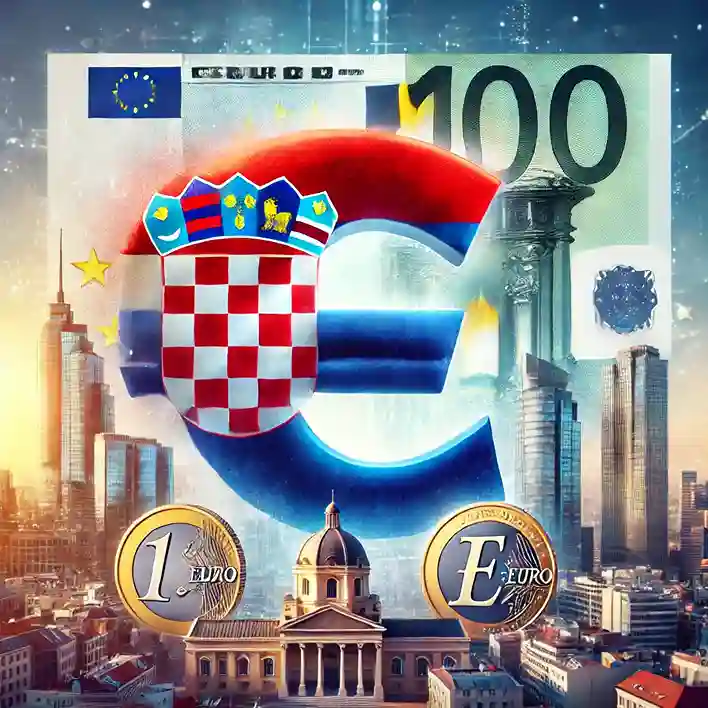Croatia Eurozone journey into the Eurozone signifies a pivotal moment in its economic trajectory. The decision to adopt the euro as its official currency reflects not only a commitment to deeper European integration but also a strategic move towards enhancing economic stability and fostering growth opportunities. As Croatia aligns itself with the Eurozone, it opens doors to a myriad of possibilities, including strengthened trade relations, increased foreign investments, and enhanced financial integration. In this comprehensive exploration, we delve into the intricacies of Croatia’s Eurozone integration, its implications for the economy, and the burgeoning synergies with the dynamic business hub of Dubai.
Eurozone Membership: A Strategic Imperative
The Eurozone membership holds profound implications for Croatia, transcending mere currency adoption. It symbolizes Croatia’s alignment with European economic standards and its commitment to fostering a conducive environment for investment and growth. By embracing the euro, Croatia aims to mitigate exchange rate risks, promote price stability, and enhance its competitiveness in the global market. Moreover, Eurozone membership facilitates smoother trade transactions, eliminates currency conversion costs, and fosters closer economic ties with fellow member states. However, the path to Eurozone integration is not without challenges. Croatia must navigate through stringent fiscal regulations, ensure macroeconomic stability, and undertake structural reforms to align its policies with Eurozone standards.
Benefits of Eurozone Membership
Economic Stability and Confidence
Adopting the euro instills a sense of stability and confidence in Croatia’s economy. By anchoring its currency to the euro, Croatia mitigates the volatility associated with fluctuating exchange rates, thereby reducing uncertainty for businesses and investors. This stability fosters an environment conducive to long-term investments, stimulates economic growth, and enhances the country’s attractiveness as a destination for foreign capital.
Streamlined Trade Relations
Integration into the Eurozone streamlines trade processes for Croatia, facilitating smoother transactions with its European counterparts. With a common currency in place, businesses can conduct cross-border trade more efficiently, eliminating the need for currency exchange and reducing transaction costs. This seamless flow of goods and services promotes trade expansion, bolsters economic cooperation, and enhances Croatia’s integration into the European single market.
Access to Financial Markets
Eurozone membership grants Croatia access to deeper and more liquid financial markets, offering greater opportunities for capital mobilization and investment diversification. By aligning its financial regulations with Eurozone standards, Croatia enhances investor confidence, attracts foreign capital inflows, and strengthens its financial sector resilience. Moreover, access to Eurozone financial institutions facilitates cross-border banking activities, spurring innovation and competition in the domestic banking sector.
Challenges and Considerations
Fiscal Discipline and Structural Reforms
Adhering to Eurozone fiscal rules necessitates disciplined fiscal policies and prudent budget management. Croatia must undertake structural reforms to address underlying economic vulnerabilities, enhance productivity, and improve competitiveness. This entails tackling issues such as public debt sustainability, pension reform, and labor market efficiency to ensure long-term fiscal sustainability and economic resilience.
Macroeconomic Convergence
Achieving macroeconomic convergence with Eurozone standards requires careful coordination of monetary and fiscal policies. Croatia must maintain price stability, control inflation, and ensure sustainable economic growth to align with Eurozone benchmarks. Additionally, enhancing productivity, promoting innovation, and investing in human capital are crucial for fostering sustainable economic development and narrowing the income gap with other Eurozone member states.
Implications for Croatia’s Economy
The transition to the Eurozone carries multifaceted implications for Croatia’s economic landscape, influencing various sectors and stakeholders.
Financial Sector Dynamics
Integration into the Eurozone catalyzes transformation in Croatia’s financial sector, necessitating alignment with Eurozone regulatory frameworks and standards. This entails strengthening banking supervision, enhancing risk management practices, and promoting financial market development to ensure stability and resilience in the face of external shocks.
Trade and Commerce Dynamics
The adoption of the euro facilitates trade integration and market access for Croatian businesses, enabling them to capitalize on the benefits of the European single market. However, increased competition from other Eurozone members necessitates greater focus on enhancing productivity, innovation, and product differentiation to maintain competitiveness and sustain export growth.
Eurozone Dubai Connection: Unveiling Synergies
The Eurozone Dubai corridor presents a wealth of opportunities for economic cooperation and trade expansion between Croatia and the dynamic business hub of Dubai.
Trade and Investment Opportunities
Dubai’s strategic location and business-friendly environment make it an attractive destination for Croatian businesses seeking to expand their presence in the Middle East and beyond. The Eurozone Dubai connection facilitates trade and investment flows, fosters business collaboration, and promotes synergies between Croatian and Emirati enterprises across various sectors.
Tourism Promotion
Dubai’s status as a global tourism hub offers significant opportunities for Croatia to attract Emirati visitors and promote cultural exchange and tourism development initiatives. By leveraging Dubai’s extensive air connectivity, marketing expertise, and tourism infrastructure, Croatia can enhance its visibility as a tourist destination and diversify its tourism offerings to cater to the preferences of Emirati travelers.
Embracing the Eurozone Dubai Corridor
As Croatia embarks on its Eurozone journey and explores synergies with dynamic business hubs like Dubai, it must seize the opportunities presented by deeper economic integration and international cooperation. By fostering a conducive business environment, promoting innovation and entrepreneurship, and investing in sustainable development initiatives, Croatia can position itself as a key player in the Eurozone Dubai corridor and harness the full potential of its Eurozone membership for the benefit of its economy and society. As the partnership between Croatia, the Eurozone, and Dubai continues to evolve, collaboration and mutual understanding will be essential for driving economic growth, fostering prosperity, and building a more resilient and interconnected global economy.











